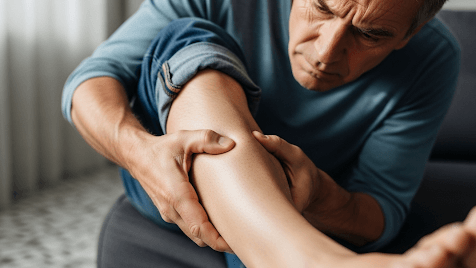
Understanding Inguinal Hernias: The Basics
An inguinal hernia occurs when tissue, often part of the intestine, protrudes through a weak point in the abdominal muscles. This condition is particularly prevalent among men, but it can also affect women, highlighting the importance of awareness and understanding among all genders. Symptoms may vary from discomfort to a noticeable bulge, and varying severity can affect how individuals perceive their health and daily activities.
The Unique Challenges Women Face
While many might associate hernias with men, women face their own set of unique challenges concerning this condition. Hormonal fluctuations, previous surgeries, and pregnancy-related changes can increase the risk of developing inguinal hernias in women. Additionally, the stigma surrounding certain health topics may result in delayed diagnoses and treatment, impacting overall women's health.
Simplifying Treatment Options
The good news is that inguinal hernias are treatable. Surgical repair remains the most common method, offering patients the option of either open surgery or laparoscopic methods, which are generally less invasive and promote quicker recovery. Women contemplating surgery must thoroughly discuss risks, benefits, and recovery expectations with their healthcare provider to ensure an informed decision.
The Role of Nutrition and Lifestyle in Recovery
What happens post-treatment is just as important as the surgery itself. A focus on nutrition and lifestyle adjustments can significantly enhance recovery speed and overall health. Incorporating foods rich in Vitamin D, for example, not only supports healing but also promotes strong muscles, potentially helping prevent future hernias. Foods such as fatty fish, fortified dairy products, and sunlight exposure are excellent sources of Vitamin D.
Future Health Insights: Preventive Measures
Beyond immediate treatment, understanding preventive measures becomes a crucial matter. Regular exercise focused on strengthening core muscles, maintaining a healthy weight, and avoiding straining during activities can be beneficial. These factors not only reduce the risk of hernias but also contribute to overall wellness that includes aspects of mental health—a significant often-overlooked component of recovery.
The Emotional Toll of Health Challenges
Health challenges like inguinal hernias can create emotional distress. Women often navigate caregiving roles, work pressures, and societal expectations, making it important to seek support through friends, family, or professional networks. Sharing experiences and coping strategies can build resilience, allowing individuals to take control of their health journeys while collaborating with medical professionals.
Real-Life Stories: Voices of Courage
Take Sara’s story: After being diagnosed with an inguinal hernia, she faced the surgery with doubts and fears concerning her recovery. With the help of her doctor and support from her peers, she embraced a new approach to her health through mindful eating and regular exercise. Today, her story serves as an inspiration to other women facing similar challenges, illustrating that recovery is indeed a journey worth taking.
Embrace Your Health: You Are Not Alone
It's vital to prioritize your health and seek guidance whenever necessary. Engaging in discussions around wellness allows not only for personal empowerment but also enriches community awareness. Reach out for support, and remember that every health challenge is an opportunity to grow healthier and stronger.
Take a step toward reclaiming your vitality today! Whether through consulting a healthcare professional, seeking support groups, or making healthier lifestyle choices, every little action counts. Don’t underestimate your power in navigating your health journey. Start today and embrace the proactive steps necessary for your well-being!
 Add Row
Add Row  Add
Add 




Write A Comment